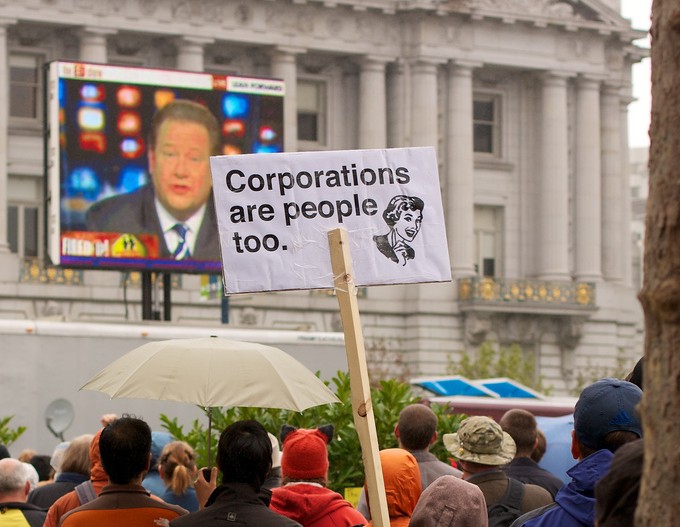
Something is aloof in international affairs, or so thinks Tufts University Professor Daniel Drezner.
Every day scholars and policy-makers meticulously hammer away at the ins and outs of pressing national security threats (Al-Qaeda, China, Iran, Wall Street, Occupy Wall Street). Drezner, however, believes that these political observers have wholly failed to recognize and address what could be the single biggest threat to all of humanity: zombies.
“When compared to work in cognate disciplines, the social sciences in general — and international relations in particular — suffer from a zombie gap,” writes Drezner. While much has been written about ghosts, wizards, aliens, and hobbits, far less time and scholarly inquiry has been devoted to contingency planning for zombies. “Theories of International Politics and Zombies,” published by Princeton University Press, is Drezner’s attempt to fill this void.
Drezner’s book is an astute take on how states would react to an outbreak of the living dead. He uses dominant theoretical paradigms in international affairs, which purport to explain state behavior to determine their reactions to a zombie attack.
What makes Drezner’s book special is both the uniqueness and impossibility of its subject matter, coupled with the author’s ability to make it all seem plausible and worth considering.
According to Drezner, both the haunt and specter of a zombie apocalypse is real and growing. Media mentions of zombies increased from just over 500 in 2000, to over 2,500 in 2009. Both popular and academic interest in zombies has risen fastidiously over the past decade, with more books and movies being released about zombies than ever before.
“One could dismiss the zombie trend as merely feeding a mass public that craves the strange and bizarre,” Drezner writes, but “such an explanation would be only skin deep. Popular culture often provides a window into the subliminal or unstated fears of citizens and zombies are no exception.”
The book primarily relies on qualitative analysis to build its case. Drezner draws “on the existing fictional narratives about zombies as they exist in popular culture,” what he calls the “zombie canon.” He also uses past governmental responses to similar incidents, (bioterrorism, pandemics, etc.) to guide his study.
The heart of Drezner’s book lies in his chapter-by-chapter analysis of how state governments could react to an outbreak of the undead. He bases this analysis on the dominant political theory in international affairs: realism, liberalism, neo-conservatism, constructivism and the bureaucratic and organizational approaches.
Drezner’s book captures the essence of each theory and paints convincing pictures of the policy avenues available to each should there be an attack of the living dead. For example, the realist position predicts that states would fend for themselves and act in what they perceived to be their own national interest. Large states would weather the storm while smaller, weaker ones languished. International organizations would be of little use, as expected. In times of great uncertainty, states would be unlikely to form alliances, instead preferring to save resources for their domestic constituencies.
Conversely, if liberalism explains state behavior, then alliances would be formed to protect all of humanity. This would possibly lead to the creation of the first supra-national government, the World Zombie Organization (WZO) perhaps. The WZO would be charged with defending humanity, multilaterally, from the scourge of the undead.
In the event of a zombie apocalypse though, liberalism’s central tenants, cooperation and discourse, may actually work against it. Globalization and interconnectedness would facilitate the spread of zombies across borders. This would inspire calls to diplomatically deal with the zombies. As a result, the influence of the inevitable pro-zombie interest groups, such as, People for the Ethical Treatment of Zombies, could come to exert a powerful say.
These are but two examples of an array of explanations of what would happen if humans and zombies were to make contact, showcasing the depth of thought that Drezner has put into explaining a hypothetical zombie apocalypse.
Drezner’s examination of the zombie canon also yields a number of intriguing, often humorous, insights into the nature and behavioral aspects of zombies.
For example, Drezner standardizes the definition of a zombie: “1) Zombies desire human flesh; they will not eat other zombies. 2) Zombies cannot be killed unless their brain is destroyed. 3) Any human being bitten by a zombie will inevitably become a zombie.”
Drezner finds that zombies are not nationalistic, nor do they harbor any religious or ethnic based grievances. In-fighting is non-existent as they exist as a single cohesive unit, bonded solely and intractably, by their desire for human brains.
“Zombies are eco friendly” as well, writes Drezner, “they walk everywhere and eat only organic food.” Geography poses few obstacles to the undead and while water can slow down zombies, it cannot stop them. Unlike AIDS, SARS or H1N1, zombie bites have a 100 percent contagion rate.
Furthermore, nuclear weapons, long seen as the equalizer between powerful states and their biggest foes, a category zombies would likely be placed in, would be of little use in a zombie apocalypse.
“Ghouls cannot be deterred,”” writes Drezner, stripping nuclear weapons of their primary function. “Nuclear weapons would no doubt incinerate massive numbers of zombies. Unlike human beings, however, the undead would survive any radioactive fallout from the nuclear blast…. if any government was so foolhardy as to launch a first strike, it would create the only thing worse than an army of the living dead: a mutant, radioactive army of the living dead.”
While the actual occurrence of a zombie apocalypse remains a remote possibility, research in the field is warranted because, “low-probability events can elicit hyperbolic policy responses if the predicted effects are severe.”
If popular culture is any guide, then the effects of a zombie apocalypse would be dire, “the elimination/subjugation of all zombies, or the eradication of humanity from the face of the earth.”
Drezner’s book is not a light read per se, as it assumes a basic grasp of international affairs on the part of the reader and can be somewhat jargon-filled. While I would not recommend the book to those unfamiliar with the actors and instutions that dominate world politics, the book remains accessible to those that have the knowledge or desire to read it. Witty footnotes and humorous cartoons abound and convey the book’s light subject matter. These are especially welcome during the few dry parts of the book. For example, when Drezner first flushes out the central tenants of each theory; though necessary for context, these parts of the book are quite technical and long-winded.
However, the book’s value ultimately derives from its versatility and utility. It can be supplementary reading for young academics attempting to understand state behavior or as a refresher for an inbound graduate student. For the true and dedicated policy wonks, it is an often side-splittingly funny look at international relations.



